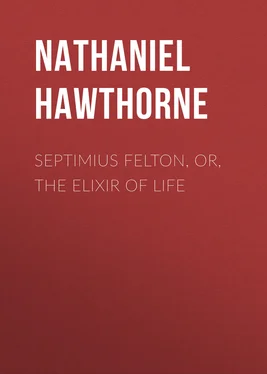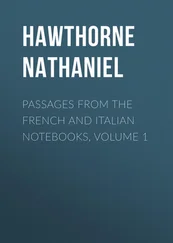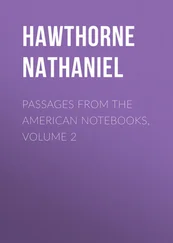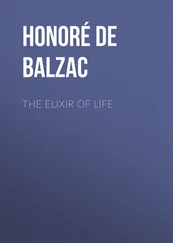Nathaniel Hawthorne - Septimius Felton, or, the Elixir of Life
Здесь есть возможность читать онлайн «Nathaniel Hawthorne - Septimius Felton, or, the Elixir of Life» — ознакомительный отрывок электронной книги совершенно бесплатно, а после прочтения отрывка купить полную версию. В некоторых случаях можно слушать аудио, скачать через торрент в формате fb2 и присутствует краткое содержание. Жанр: foreign_prose, foreign_antique, на английском языке. Описание произведения, (предисловие) а так же отзывы посетителей доступны на портале библиотеки ЛибКат.
- Название:Septimius Felton, or, the Elixir of Life
- Автор:
- Жанр:
- Год:неизвестен
- ISBN:нет данных
- Рейтинг книги:3 / 5. Голосов: 1
-
Избранное:Добавить в избранное
- Отзывы:
-
Ваша оценка:
- 60
- 1
- 2
- 3
- 4
- 5
Septimius Felton, or, the Elixir of Life: краткое содержание, описание и аннотация
Предлагаем к чтению аннотацию, описание, краткое содержание или предисловие (зависит от того, что написал сам автор книги «Septimius Felton, or, the Elixir of Life»). Если вы не нашли необходимую информацию о книге — напишите в комментариях, мы постараемся отыскать её.
Septimius Felton, or, the Elixir of Life — читать онлайн ознакомительный отрывок
Ниже представлен текст книги, разбитый по страницам. Система сохранения места последней прочитанной страницы, позволяет с удобством читать онлайн бесплатно книгу «Septimius Felton, or, the Elixir of Life», без необходимости каждый раз заново искать на чём Вы остановились. Поставьте закладку, и сможете в любой момент перейти на страницу, на которой закончили чтение.
Интервал:
Закладка:
Another shot or two came almost simultaneously from the wooded height, but without any effect that Septimius could perceive. Almost at the same moment a company of the British soldiers wheeled from the main body, and, dashing out of the road, climbed the hill, and disappeared into the wood and shrubbery that veiled it. There were a few straggling shots, by whom fired, or with what effect, was invisible, and meanwhile the main body of the enemy proceeded along the road. They had now advanced so nigh that Septimius was strangely assailed by the idea that he might, with the gun in his hand, fire right into the midst of them, and select any man of that now hostile band to be a victim. How strange, how strange it is, this deep, wild passion that nature has implanted in us to be the death of our fellow-creatures, and which coexists at the same time with horror! Septimius levelled his weapon, and drew it up again; he marked a mounted officer, who seemed to be in chief command, whom he knew that he could kill. But no! he had really no such purpose. Only it was such a temptation. And in a moment the horse would leap, the officer would fall and lie there in the dust of the road, bleeding, gasping, breathing in spasms, breathing no more.
While the young man, in these unusual circumstances, stood watching the marching of the troops, he heard the noise of rustling boughs, and the voices of men, and soon understood that the party, which he had seen separate itself from the main body and ascend the hill, was now marching along on the hill-top, the long ridge which, with a gap or two, extended as much as a mile from the village. One of these gaps occurred a little way from where Septimius stood. They were acting as flank guard, to prevent the up-roused people from coming so close to the main body as to fire upon it. He looked and saw that the detachment of British was plunging down one side of this gap, with intent to ascend the other, so that they would pass directly over the spot where he stood; a slight removal to one side, among the small bushes, would conceal him. He stepped aside accordingly, and from his concealment, not without drawing quicker breaths, beheld the party draw near. They were more intent upon the space between them and the main body than upon the dense thicket of birch-trees, pitch-pines, sumach, and dwarf oaks, which, scarcely yet beginning to bud into leaf, lay on the other side, and in which Septimius lurked.
[ Describe how their faces affected him, passing so near; how strange they seemed .]
They had all passed, except an officer who brought up the rear, and who had perhaps been attracted by some slight motion that Septimius made,–some rustle in the thicket; for he stopped, fixed his eyes piercingly towards the spot where he stood, and levelled a light fusil which he carried. "Stand out, or I shoot," said he.
Not to avoid the shot, but because his manhood felt a call upon it not to skulk in obscurity from an open enemy, Septimius at once stood forth, and confronted the same handsome young officer with whom those fierce words had passed on account of his rudeness to Rose Garfield. Septimius's fierce Indian blood stirred in him, and gave a murderous excitement.
"Ah, it is you!" said the young officer, with a haughty smile. "You meant, then, to take up with my hint of shooting at me from behind a hedge? This is better. Come, we have in the first place the great quarrel between me a king's soldier, and you a rebel; next our private affair, on account of yonder pretty girl. Come, let us take a shot on either score!"
The young officer was so handsome, so beautiful, in budding youth; there was such a free, gay petulance in his manner; there seemed so little of real evil in him; he put himself on equal ground with the rustic Septimius so generously, that the latter, often so morbid and sullen, never felt a greater kindness for fellow-man than at this moment for this youth.
"I have no enmity towards you," said he; "go in peace."
"No enmity!" replied the officer. "Then why were you here with your gun amongst the shrubbery? But I have a mind to do my first deed of arms on you; so give up your weapon, and come with me as prisoner."
"A prisoner!" cried Septimius, that Indian fierceness that was in him arousing itself, and thrusting up its malign head like a snake. "Never! If you would have me, you must take my dead body."
"Ah well, you have pluck in you, I see, only it needs a considerable stirring. Come, this is a good quarrel of ours. Let us fight it out. Stand where you are, and I will give the word of command. Now; ready, aim, fire!"
As the young officer spoke the three last words, in rapid succession, he and his antagonist brought their firelocks to the shoulder, aimed and fired. Septimius felt, as it were, the sting of a gadfly passing across his temple, as the Englishman's bullet grazed it; but, to his surprise and horror (for the whole thing scarcely seemed real to him), he saw the officer give a great start, drop his fusil, and stagger against a tree, with his hand to his breast. He endeavored to support himself erect, but, failing in the effort, beckoned to Septimius.
"Come, my good friend," said he, with that playful, petulant smile flitting over his face again. "It is my first and last fight. Let me down as softly as you can on mother earth, the mother of both you and me; so we are brothers; and this may be a brotherly act, though it does not look so, nor feel so. Ah! that was a twinge indeed!"
"Good God!" exclaimed Septimius. "I had no thought of this, no malice towards you in the least!"
"Nor I towards you," said the young man. "It was boy's play, and the end of it is that I die a boy, instead of living forever, as perhaps I otherwise might."
"Living forever!" repeated Septimius, his attention arrested, even at that breathless moment, by words that rang so strangely on what had been his brooding thought.
"Yes; but I have lost my chance," said the young officer. Then, as Septimius helped him to lie against the little hillock of a decayed and buried stump, "Thank you; thank you. If you could only call back one of my comrades to hear my dying words. But I forgot. You have killed me, and they would take your life."
In truth, Septimius was so moved and so astonished, that he probably would have called back the young man's comrades, had it been possible; but, marching at the swift rate of men in peril, they had already gone far onward, in their passage through the shrubbery that had ceased to rustle behind them.
"Yes; I must die here!" said the young man, with a forlorn expression, as of a school-boy far away from home, "and nobody to see me now but you, who have killed me. Could you fetch me a drop of water? I have a great thirst."
Septimius, in a dream of horror and pity, rushed down the hill-side; the house was empty, for Aunt Keziah had gone for shelter and sympathy to some of the neighbors. He filled a jug with cold water, and hurried back to the hill-top, finding the young officer looking paler and more deathlike within those few moments.
"I thank you, my enemy that was, my friend that is," murmured he, faintly smiling. "Methinks, next to the father and mother that gave us birth, the next most intimate relation must be with the man that slays us, who introduces us to the mysterious world to which this is but the portal. You and I are singularly connected, doubt it not, in the scenes of the unknown world."
"Oh, believe me," cried Septimius, "I grieve for you like a brother!"
"I see it, my dear friend," said the young officer; "and though my blood is on your hands, I forgive you freely, if there is anything to forgive. But I am dying, and have a few words to say, which you must hear. You have slain me in fair fight, and my spoils, according to the rules and customs of warfare, belong to the victor. Hang up my sword and fusil over your chimney-place, and tell your children, twenty years hence, how they were won. My purse, keep it or give it to the poor. There is something, here next my heart, which I would fain have sent to the address which I will give you."
Читать дальшеИнтервал:
Закладка:
Похожие книги на «Septimius Felton, or, the Elixir of Life»
Представляем Вашему вниманию похожие книги на «Septimius Felton, or, the Elixir of Life» списком для выбора. Мы отобрали схожую по названию и смыслу литературу в надежде предоставить читателям больше вариантов отыскать новые, интересные, ещё непрочитанные произведения.
Обсуждение, отзывы о книге «Septimius Felton, or, the Elixir of Life» и просто собственные мнения читателей. Оставьте ваши комментарии, напишите, что Вы думаете о произведении, его смысле или главных героях. Укажите что конкретно понравилось, а что нет, и почему Вы так считаете.












